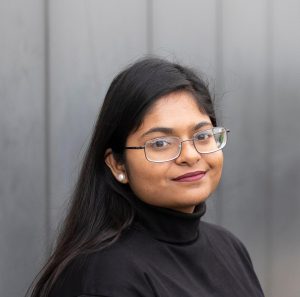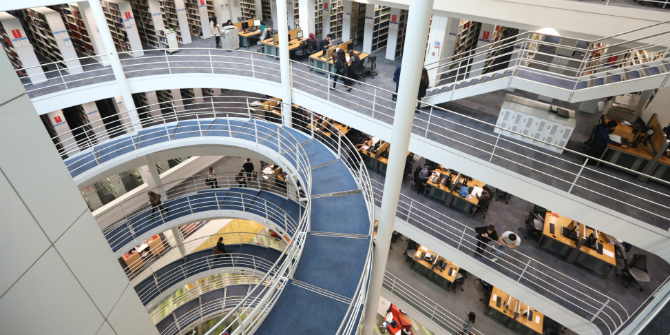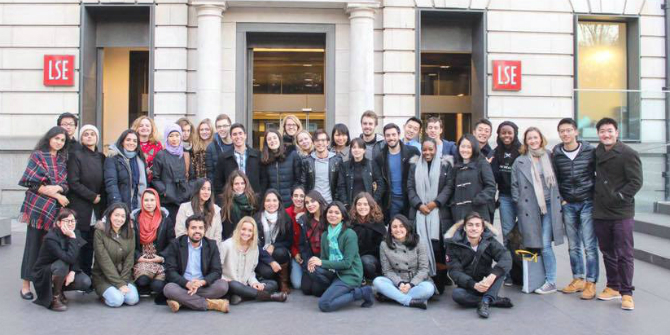#BreakTheBias: Two Data Science and Finance students share their thoughts on breaking the bias in their traditionally male-dominated fields.
This international women’s day at LSE, I decided to talk to two of my peers who are pursuing their master’s in fields that are traditionally considered male-dominated to know their stories of breaking biases.
Estelle Yeung – USA/Hong Kong
It was Estelle’s previous job that brought her to data science. A native of Silicon Valley, her previous role at a Fintech company earned her a chance to interact with a lot of professionals in both the data and the product teams. These interactions led her to pursue data science—a field synonymous with job security in the Valley.
I asked Estelle some questions about her field and the discourse. She had some interesting answers for me.
Is your field considered male-dominated? Why or why not?
Estelle: “Data science is a relatively new domain for me. Thus, I cannot speak for everyone or the entire field. Back in the US, it is still considered a male-dominated field simply because of the stigma that women cannot excel in the field of STEM or programming or math for that matter. I think it’s getting better now with lots of boot camps specifically designed for women to pursue STEM or programming.”
In my cohort at LSE, we have a 50:50 ratio of male and female students. So, it’s getting better.
Data/knowledge is considered a new currency. How do you think you can contribute to gender equality through this degree/knowledge earned from this degree?
Estelle: “Nowadays, from policy formulation to everyday business practices, knowing how to interpret the data is necessary. If more women pursue careers in this field, that increases the number of more competent professionals. Back in my previous company, among thirty-forty engineers, we only had three-four female professionals.”
Getting this degree means that I can now be one of those people who demonstrate skills and competence and are employable by those companies.
This year’s theme is #BreakTheBias. What biases do people generally have about data scientists? And what (biases) did you have to overcome to reach here?
Estelle: “I can think of two types of biases — requirement biases and data biases. A common assumption is that a strong prior quantitative background is necessary to work with data. Even though it’s beneficial, appropriate and proper training can equip anyone to excel in the field. I am from a social science background and have had no prior quantitative or statistical background. However, I have been able to overcome this bias and decided to pursue a career in this field.”
“The other kind of bias that I wanted to address is the bias in the data itself. The data can be biased towards the majority. Acknowledging and addressing this bias being a minority myself can help me to see the data from different perspectives as well.”
Find more about Estelle’s programme and other data science programmes at LSE.
Farah Naz Aditi – Bangladesh
Farah pursued Business Administration for her bachelor’s and majored in Finance back in Bangladesh. An avid lover of maths and numbers, complex challenges excite her. She worked in a multinational bank upon graduation which exposed her to conduct financial analysis and modelling daily. At LSE, Farah is completely immersed in the learning process and is wholeheartedly enjoying the experience rather than worrying about grades.
Here is what Farah shared with me when I asked her some questions about her field and the discipline.
Is your field considered male-dominated? Why or why not?
Farah: “In a team of almost thirty finance professionals, barely five-six of them would be women back in Bangladesh. You do the math now. It’s predominantly male-dominated back in Bangladesh.”
How important do you think financial literacy or inclusion of digital financial services for women? What are you learning here that can help you to make access to financial services better back in your home country?
Farah: “Financial literacy is an aspect that most women back home need to get proper training on. Something as routine as filing taxes is not taught. We aren’t taught about investment, saving, and managing our own finances.”
“In today’s time, women entrepreneurs are earning money but are not taught how to properly invest the money to bring in more profit. This could be due to succumbing to the traditional narrative of men being the primary bread earners and women being the homemakers.”
The best part of being here at LSE is that I feel like I have developed a very clear understanding of some of the rudimentary financial concepts.
“When I get back home, I would love to join academia and pass on this knowledge to young students. I would love to fill the knowledge void that no one did when I was a student.”
What are some of the financial problems that you have in your home country?
Farah: “From my limited understanding and in no way, I am yet an expert on the field, the finance industry in Bangladesh needs a lot more diversification. I would say that we are in the very early stages of development, and we need to improve our service delivery, product design, innovation. Something as simple as a contactless card can be easily implemented back in Bangladesh. We need to move our focus away from the trivial stuff and concentrate on the big-picture scenario and thus up our game.”
This year’s theme is #BreakTheBias. What biases do you wish no longer existed?
Farah: “Men are arguably in-charge of almost all the major financial institutions all over the world. A common bias is that women are not trustworthy with money. Even though we have evidence of women being perfectly capable of handling money, the practice says otherwise. The representation of women in mainstream media as vile and untrustworthy with money is further feeding into forming these biases. I wish the true potential of women was recognised. With proper training, women are perfectly capable of handling money if not more than men.
Find more about Farah’s programme, and other Finance programmes at LSE.
Happy International Women’s Day to everyone. Together, let’s #BreakTheBias!







